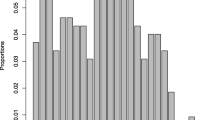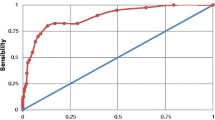Summary
This research is intended to validate the Edinburgh Postnatal Depression Scale (EPDS) in a high-risk pregnant population.
Method: Sixty women attending antenatal consultations for pregnancy complication in a major Parisian maternity facility were included. They completed the EPDS and were then interviewed according to a standardised psychiatric interview.
Results: The study of its sensitivity, specificity and predictive values, with a DSM-IV diagnosis of major depression as the reference, found that 11.5 was the optimal cut-off score (Se 0.80; Sp 0.80). Its validity as an index of severity of depression was also good as well as internal consistency and reliability. Factor analysis showed that its internal structure is composed of two subscales (F2 “depression” and F1 with items reflecting depression and other disorders, including anxiety).
Conclusion: The French version of the EPDS would be a valid instrument to identify pregnant women who are likely to have clinical major depression. The results may have to be confirmed on a community sample before clinical use.
Similar content being viewed by others
Author information
Authors and Affiliations
Rights and permissions
About this article
Cite this article
Adouard, F., Glangeaud-Freudenthal, N. & Golse, B. Validation of the Edinburgh postnatal depression scale (EPDS) in a sample of women with high-risk pregnancies in France. Arch Womens Ment Health 8, 89–95 (2005). https://doi.org/10.1007/s00737-005-0077-9
Received:
Accepted:
Published:
Issue Date:
DOI: https://doi.org/10.1007/s00737-005-0077-9




